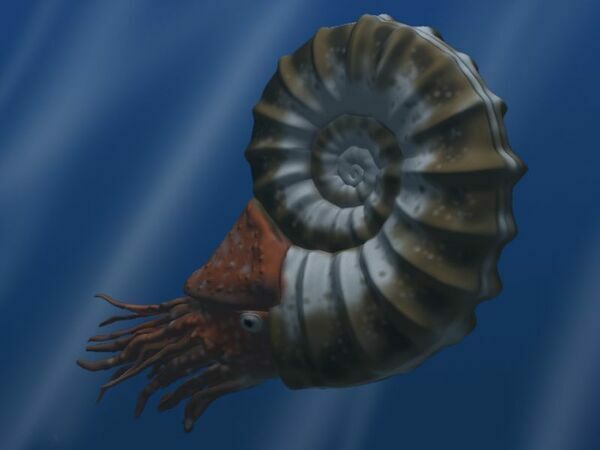This Specimen has been sold.
9.3" Tall, Composite Ammonite Fossil Display - 110 Million Years Old
This is a very aesthetic cluster of 110 million year old ammonite and gastropod fossils from the Mahajanga Province of Madagascar. The entire piece measures 9.3" tall, 8.4" wide and weighs about 14 lbs. Several of the ammonite fossils appear to have been composited onto the rock, but it's a beautiful display piece. The largest ammonite on the piece is 4.4" across. Many of the ammonites display the distinctive suture patterns of the inner shell, while others show the iridescent outer shell.
About Ammonites
Ammonites were predatory, marine mollusks that thrived during the Paleozoic and Mesozoic eras, particularly in the Jurassic and Cretaceous periods, before going extinct around 66 million years ago. These creatures are characterized by their coiled, spiral shells, which resemble the modern-day nautilus. Ammonite shells were divided into chambers; as they grew, they built new chambers and sealed off the old ones. These chambers were filled with gas, which helped them control buoyancy in the ocean.
The outer shell of ammonites often displays intricate ribbed or ridged patterns and their fossils sometimes show a wide range of beautiful colors due to mineralization over time. The shells fossilized well, making ammonites abundant in the fossil record.. In addition to being popular in fossil collections, ammonites are valuable in geological studies, as they serve as index fossils, helping scientists date rock layers and understand the Earth's prehistoric environments.
Ammonites were predatory, marine mollusks that thrived during the Paleozoic and Mesozoic eras, particularly in the Jurassic and Cretaceous periods, before going extinct around 66 million years ago. These creatures are characterized by their coiled, spiral shells, which resemble the modern-day nautilus. Ammonite shells were divided into chambers; as they grew, they built new chambers and sealed off the old ones. These chambers were filled with gas, which helped them control buoyancy in the ocean.
The outer shell of ammonites often displays intricate ribbed or ridged patterns and their fossils sometimes show a wide range of beautiful colors due to mineralization over time. The shells fossilized well, making ammonites abundant in the fossil record.. In addition to being popular in fossil collections, ammonites are valuable in geological studies, as they serve as index fossils, helping scientists date rock layers and understand the Earth's prehistoric environments.
SPECIES
Cleoniceras, Dactilioceras, Astarte sp., unidentifed ammonite and goniatite
LOCATION
Ambatolafia, Mahajanga Province, Madagascar
SIZE
9.3" tall, 8.4" wide, about 14 lbs
CATEGORY
SUB CATEGORY
ITEM
#120701
We guarantee the authenticity of all of our specimens.
 Reviews
Reviews















